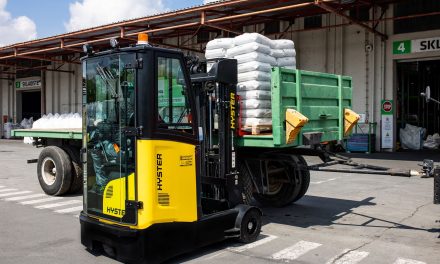 While companies will strive to demonstrate their green credentials, commercial reality will drive policy and all aspects of the supply chain will be reviewed to ensure running costs are minimised, says Roger Williams, CEO of the All Ireland Warehousing Association
While companies will strive to demonstrate their green credentials, commercial reality will drive policy and all aspects of the supply chain will be reviewed to ensure running costs are minimised, says Roger Williams, CEO of the All Ireland Warehousing Association
Despite concerns about the environmental impact of hauling goods from one side of the globe to the other, the distance that products are shipped from their point of production to the end consumer has continued to grow.
It is now clear that developing markets are playing an increasingly important role in global supply chain strategies as manufacturers look to the next wave of low cost production locations. However, ongoing concerns about economic over-heating in China and higher global oil prices, are driving a trend towards “near-sourcing” products manufactured in markets closer to end-consumers in the West.
While commercially driven, any shift to “near sourcing” procurement strategies will have obvious environmental benefits that companies will no doubt be keen to exploit.
As the 21st century unwinds, businesses will need to be seen to be offsetting the eco-impact of their global supply chains and will increasingly look to employ the greenest forms of transport. But commercial reality will drive policy and all aspects of the supply chain will be reviewed to ensure that running costs are minimised.
Some believe that in Western Europe this will mean greater uptake of automated storage systems in warehouses and distribution centres.
But, while take-up of automated systems may increase, the humble forklift truck is likely to remain at the heart of any efficient supply chain. It could be argued that forklift trucks are approaching the point where they cannot be safely made to travel any faster or lift the load any more quickly without contravening heath and safety requirements, therefore future supply chain efficiencies are likely to be made by optimising the truck’s on-board intelligence systems. There are still plenty of opportunities to make the forklift truck work smarter and they will begin to emerge.
There is no question that an effectively managed supply chain can positively influence business performance and, if companies are going to succeed in a competitive and unpredictable environment, every link in the chain must operate at optimum efficiency.
That’s why any company that finds its fixed logistics costs are having a negative impact on its balance sheet has to consider outsourcing to a 3PL and members of the All Ireland Warehousing Association report sustained growth in the number of businesses choosing to outsource logistics and supply chain management functions.



